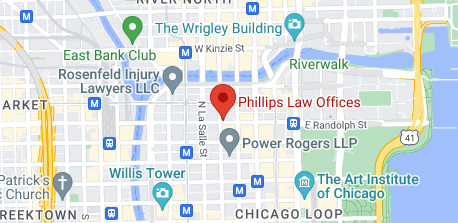With the needed medical records, to prove your mental distress, you can claim the person at fault for Anxiety.it is mandatory to establish that the incident caused or worsen your Anxiety.
In a car accident claim, the compensation you receive isn’t limited to physical injuries. The emotional and mental distress resulting from a significant motor vehicle accident can also be eligible for compensation, recognizing the importance of addressing both physical and psychological harm.
Yet, demonstrating psychological trauma for an insurance claim, compulsory third-party (CTP) claim, or other compensation can be more challenging. Unlike physical injuries, mental and emotional distress doesn’t manifest in visible ways like a broken bone or a cut. Proving psychological trauma for compensation requires extra effort and attention to the symptoms your body experiences.
If you’re wondering about getting compensation for psychological trauma, here are some ways to strengthen your case.
What is Emotional Distress after an Accident?
Experiencing emotional distress after a car accident can manifest in various ways. To seek compensation for this emotional distress, it’s essential to pinpoint the specific emotional challenges resulting from the accident. For instance, if you had a diagnosis of depression before the accident, and it remains unchanged afterward, it’s less likely that you can claim compensation for treating it. However, if you’re newly diagnosed with depression following the accident, you may have a valid claim for emotional or psychological distress.
Anxiety can also be triggered or heightened by car accidents, leading to feelings of tension, worry, and unease in everyday situations. These anxieties may not seem directly connected to the accident but can cause discomfort in crowded places or sudden startle responses to loud noises, unexpectedly disrupting daily life.
Similarly, depression, or major depressive disorder, can be a crippling consequence of a car accident. Victims may feel their lives have been profoundly altered, leading to a sense of hopelessness. Physical injuries from the accident can hinder normal interactions with others, making it challenging to connect with friends and loved ones who may not fully comprehend the victim’s experience. Depression can impact various aspects of life, from sleep and appetite to work performance and overall energy levels, making everyday tasks difficult to manage.
Traumatic events can lead to sleep disturbances, including difficulty falling asleep, staying asleep, or experiencing restful sleep.
Insomnia can contribute to increased feelings of exhaustion and stress.
Panic attacks can occur suddenly and are often intense periods of fear or discomfort.
They may include symptoms such as rapid heartbeat, shortness of breath, trembling, and a sense of impending doom.
Emotional distress can manifest as changes in appetite or eating habits, resulting in overeating or loss of appetite.
Such changes can impact physical health and well-being.
Emotional distress can interfere with cognitive functioning, making it challenging to concentrate or make decisions.
Individuals may feel mentally overwhelmed and struggle with tasks that were previously manageable.
Following a traumatic event, individuals may experience profound feelings of guilt or remorse, especially if they perceive themselves as responsible for the incident.
Helplessness can also manifest, with individuals feeling powerless to change the situation.
Emotional distress often leads to irritability, where individuals become easily frustrated or agitated.
Mental and emotional distress can encompass a range of symptoms, including sadness, fear, and general unease.
For your compensation claim, it is vital to have these conditions diagnosed by a qualified therapist, as this substantiates the emotional and psychological struggles stemming from the accident, forming the basis for your claim.
Providing Evidence of Fault for Anxiety Arising from a Car Accident
When it comes to proving fault for anxiety that stems from a car accident, the key lies in assembling a robust body of evidence that establishes a clear link between the accident and the ensuing emotional distress. This may encompass thorough accident scene documentation, comprehensive medical records, expert assessments, and a detailed exploration of any pre-existing conditions that may have been amplified due to the accident.
You can use a police report as evidence to show that someone else caused a car accident and the resulting mental health issues. This report contains information about how the accident happened, including details from the scene. It might also include the results of any breathalyzer tests conducted there. Additionally, you can find statements from witnesses in the police report, which offer more information about what happened before, during, and after the collision.
Estimating the Compensation You Can Seek
There are several elements that influence the amount of compensation you get for anxiety related to an automobile accident. If anxiety was a problem for you prior to the accident and it got worse, you could not get as much money as someone who didn’t have anxiety. The price of any therapy or drug that you are prescribed also has an impact on how much you get.
It’s a good idea to initially speak with attorneys since a number of factors influence the amount of compensation you can receive for anxiety. They will consult with your doctor to estimate the expense of treating your disease and establish whether continued exposure to triggers would increase the likelihood of it getting worse.
Your lawyer can determine how anxiety affects many elements of your life and determine the monetary value of these damages based on this appraisal.
Talk to an Experienced Attorney
Before you determine the amount of compensation you may get, it is critical for you to consult with an experienced attorney. they will provide you all the information you need and help you assess the extent of distress the accident has imposed on you.
to get the closest value to what you are seeking, an attorney should be considered. what you may get as a compensation will be determined on several factors such as , if the at fault person has experienced bigger injuries and is unfit to compensate for your loss; if you are a victim of lost wages or if any of the party is accused of a bigger fault than the other.
hence, it is advised to take help of an attorney to better understand the legal complexities of the process.
If you’re struggling with anxiety following a car accident, know that you’re not alone, and there is help available. Phillips Law Office is here to support you on your journey to recovery. Our experienced team can provide you with the legal guidance you need to explore potential compensation for your emotional distress. We understand the complexities of these situations and are committed to advocating for your rights.
Don’t hesitate to reach out to Phillips Law Office to discuss your case and explore the options available to you. Your well-being matters, and we are here to help you through this challenging time. Contact us today to take the first step towards healing and securing the support you deserve.






